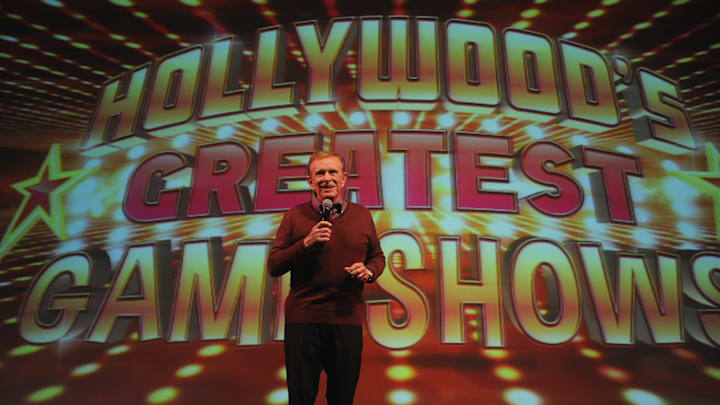Let's flashback to the heyday of The Cinnamon Cinder, which was a chain of teen nightclubs popular in California during the early 1960s. Even before it the original location was called "Cinnamon Cinder," it was already known as a place that was positive to rock musicians. It had previously been Larry Potter's Supper Club, known for "featuring first class food and drink, as well as top-notch jazz, R&B and early rock-and-roll groups."
However, as Cinnamon Cinder, it played a key role in the development of youth culture and live music venues tailored specifically for teenagers during this era. The Cinnamon Cinder was established in 1962 by Bob Eubanks, a radio DJ who would later become famous as the host of The Newlywed Game, along with a few business partners. It was designed as a nightclub that catered specifically to teenagers, offering a safe, alcohol-free environment where they could enjoy live music and dancing.
The club's ag-appropriate tagline was "It's Boss!," which resonated with the slang and culture of the time. The original Cinnamon Cinder club opened in North Hollywood, but the chain eventually expanded to other locations in California, including Long Beach, Studio City, and San Bernardino. The clubs were strategically placed in suburban areas where there was a growing population of teenagers eager for their own social spaces.
They went about things correctly, as the clubs became known for hosting live performances by popular artists and bands of the time, in some paving the way for other music venues that would come along. Acts like The Coasters, The Drifters, The Beach Boys, The Righteous Brothers, and Ike and Tina Turner performed at various Cinnamon Cinder locations. It also featured house bands and regular dance events that drew in young crowds. It should also be noted that Eubanks helped The Beatles out in America, mortgaging his house to cover the expenses for the first concert at the Hollywood Bowl.
Cinnamon Cinder caught on, for a little while
One of the aspects of Cinnamon Cinder that some might appreciate: It was at least intended to be drug and alcohol free. Though many modern clubs fully expect the presence of alcohol and "club drugs," these clubs probably seemed okay with moderately permissive parents. The idea seemed to be simply that teens would go out and have a relatively innocent fun time listening to exciting music.
In 1963, Bob Eubanks and his team even released a theme song for the club, titled "Cinnamon Cinder (It's a Very Nice Dance)" by The Pastel Six, which became a minor hit. In fact, it qualifies as a "one-hit wonder," or "an act that has won a position on Billboard's national, pop, Top 40 just once." [Jancik, Wayne (2008). One-Hit Wonders. Orlando, Florida: Booksurge Publishing.]
Cultural impact, decline, and legacy
The Cinnamon Cinder was a forerunner in the teen-club phenomenon, providing a model for future venues. It also played a significant role in the rise of California's surf and rock-and-roll music scenes. The club was known for fostering a sense of community among teenagers while also being a stepping stone for artists who were gaining popularity.
As the 1960s progressed, the rise of larger concert venues and the changing dynamics of youth culture led to a decline in the popularity of teen nightclubs like the Cinnamon Cinder. The last of the Cinnamon Cinder clubs closed its doors in the late 1960s. Today, the Cinnamon Cinder is remembered (probably fondly, at least in many cases) as a symbol of the 1960s teen culture and music scene.
Also, Bob Eubanks' role in founding the club has earned him another place in pop culture history, particularly for his connection to the burgeoning California rock music movement. Though, again, we largely remember Bob as a freewheeling game show host who popularized the catchphrase "makin' whoopee," these clubs are something he and his business partners (Mickey Brown, Stan Bannister, and Roy Bannister) launched to further launch rock and roll.
As a fun parting bit of trivia, Bob Eubanks appears (as Himself) in The Offspring video "Why Don't You Get A Job?," which is definitely also a musical nod (albeit sort of an annoying one) to a fampus Beatles song. Though The Kinks sort of launched hard rock by popularizing distortion, Bob Eubanks saw the lightning energy in Beatlemania, and obviously kept the rock and roll ball rolling along with The Offspring appearance. So, next time you see re-runs of The Dating Game, or any other show with Bob Eubanks, keep in mind that rockers everywhere (perhaps especially Beatles fans) sort of owe him recognition.
